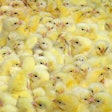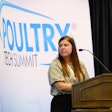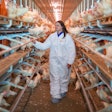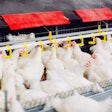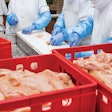
Artificial intelligence (AI) and other emerging technology are improving poultry genetics, resulting in broilers that are more efficient, healthier and productive.
“We’re in a new space today,” said William Herring, VP of R&D, Cobb. “There’s a lot of discussion about AI. I fundamentally believe that is a part of our future in how we’re going to deliver the next generation of products to our customers.”
For example, AI could help researchers determine the best candidates to undergo genotyping or decide the likeliest genes to target when it comes to disease resistance, saving time, money and effort.
“We have data coming in 24/7 from across the globe into our computing architecture to help us understand more about production, about our flocks and also working with our customers in the same way to have that type of deep understanding,” he added.
At the 2023 Poultry Tech Summit, Herring discussed the importance of new technologies and partnerships to advance and implement new production techniques that can improve poultry health and well-being.
Supporting future poultry genetic innovation
The Cobb Research Initiative (CRI) recently announced its first 9 grant recipients. The program is designed to fund research that uses emerging technology to advance poultry genetics with an immediate focus on improving hatchability, mortality, egg production, fertility and an increased rate of genetic progress in broilers for weight, yield, breast meat, feed efficiency and beneficial feeding behaviors.
“We felt like this was an opportunity area for us to really network across the globe to work with folks we maybe haven’t worked with before,” explained Herring. “A lot of the topics are AI-associated with precision phenotyping or AI-based algorithms to help us measure birds more accurately, faster, more economically or describe new traits that we struggle with today.”
Additional funding is available for leaders in basic and applied research that are working on solutions to advance poultry health, care and welfare using advanced technology and innovating thinking.









